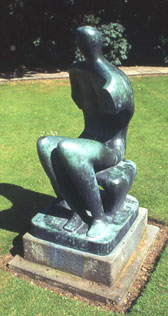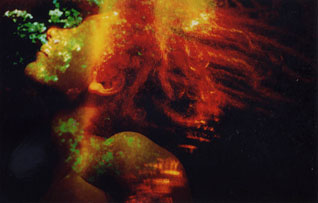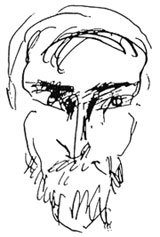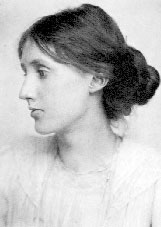Part-Time Master’s Degree In Modernism
[2008-2010]

The part-time Master’s in Modernism is a two-year course which provides the opportunity to undertake specialist research in English Literature from 1890 to 1939. The course considers the experimentation with language and form which resulted in the distinctive work of selected writers of the early modern period and the cultural and intellectual context in which that experimentation took place. The course aims to place the literature studied in the social and historical conditions out of which it arose and which in turn it helped to shape. Concepts such as ‘The Modern’, ‘Modernist’ and ‘Post-Modernist’ are investigated and the course also considers whether such different authors as those studied can be said to belong to a single designated period or movement. It investigates how far Modernism was characterised by radical experimentation and innovation in the arts and how far it may be seen as a period which transmitted a strong humanist tradition from the nineteenth century. Critical theory also forms an integral part of the programme, which encourages student engagement with critical thought of, and about, the period.
In the first year the course consists of an initial day-school followed by 24 weekly evening lecture and seminar sessions in the Michaelmas, Lent and Easter terms, as well as a non-residential weekend school. Students write three class essays of 2500 words each (one per term), one of which forms the basis for a seminar presentation. In the second year students undertake independent research on a topic of their choice in consultation with a supervisor from the English Faculty and submit a dissertation of 15,000 words. Master’s in Modernism students are members of Colleges and enjoy the full use of the English Faculty and University Libraries as well as the University’s other facilities. They are encouraged to attend the English Faculty’s research seminars at which members of the Faculty, postpostgraduate students and visiting speakers present papers for discussion. Students are also entitled to attend the University’s public lectures and lectures given in the Faculty of English.
The Master’s in Modernism is a free-standing degree but can also act as a gateway to further research and a high percentage of postgraduates have proceeded to doctoral study at other universities as well as in the University of Cambridge.

Year One begins with an initial Saturday day-school on library use, information technology, bibliography and research methods, including participation in short exercises to ensure that students are familiar with the appropriate techniques required for postgraduate study. The course (of weekly two-hour evening sessions) then proceeds chronologically and the first term covers the late nineteenth century to the First World War, with emphasis on such writers as Conrad, Joyce, the men and women poets of the Great War, and the playwrights who contributed to the rise of modernist drama. The second term, spanning the First World War to 1925, examines the ‘cultural seismology’ which the war and its aftermath generated and includes D.H. Lawrence, Katherine Mansfield, T.S. Eliot, and Pound. The third term focuses on the different visions and achievements of Yeats, Woolf and Auden, and the first year concludes with a symposium on ‘Modernism and its Movements’.
Students are also offered a non-residential weekend school in ‘Modernism and the Arts’ where literary Modernism is seen as part of a much larger aesthetic which involves poetry, sculpture, architecture and music. The programme explores the degree to which disparate art forms may share philosophical, structural and stylistic principles and it seeks to assess how far English art and music can be seen as modernist. This weekend also includes visits to the Fitzwilliam Museum and Kettle’s Yard.
In Year Two candidates submit a research proposal on a topic of their choice in the modernist period or arising out of it, and proceed to independent research in close consultation with their supervisors from the Faculty. The second year also offers seminars at which papers are presented by Junior Research Fellows of the Colleges, Visiting Scholars, or final year doctoral candidates whose work is relevant to the course.
The Course Director is Dr Mara Kalnins, Reader in Modern English Literature and Fellow of Corpus Christi College. Lectures and seminars in the first year and supervisions for the second year are undertaken by members of the English Faculty and by other specialists in the field who include:
 |
|
| Professor Dame Gillian Beer | Clare Hall |
| Dr Jean Chothia | Selwyn College |
| Dr Santanu Das | London University |
| Dr Anne Fernihough | Girton College |
| Dr. Michael Hrebeniak | Magdalene College |
| Miss Alison Hennegan | Trinity Hall |
| Dr Mara Kalnins | Corpus Christi College |
| Dr Rod Mengham | Jesus College |
| Dr Drew Milne | Trinity Hall |
| Dr Kate Price | Anglia Polytechnic-University |
| Dr Trudi Tate | Clare Hall |
| Mr Steve Watts | Homerton College |
| Mr Clive Wilmer | Sidney Sussex College |
| Dr Mark Wormald | Pembroke College |
Admissions take place every other year and candidates are expected to have at least a good 2:1 first degree in English or the equivalent. The closing date for applications is 15th March 2008. (Late applications may be considered at the discretion of the Course Director.)
Please note that although the Master's in Modernism is offered under the aegis of the English Faculty, the day-to-day administration of part-time Master's degrees in the University is undertaken by the Institute of Continuing Education.
If you would like further particulars and an application form please contact:
Ms Susan Woodall
Institute of Continuing Education
Madingley Hall
Madingley
Cambridge CB23 8AQ
UK
Tel. 01954 280280
| Henry Moore, courtesy of Corpus Christi College 'Metamorphosis II', courtesy of Elena Retfalvi D.H. Lawrence Sketch by Ursula Tyrwhitt, by kind permission of Mrs Huws |


